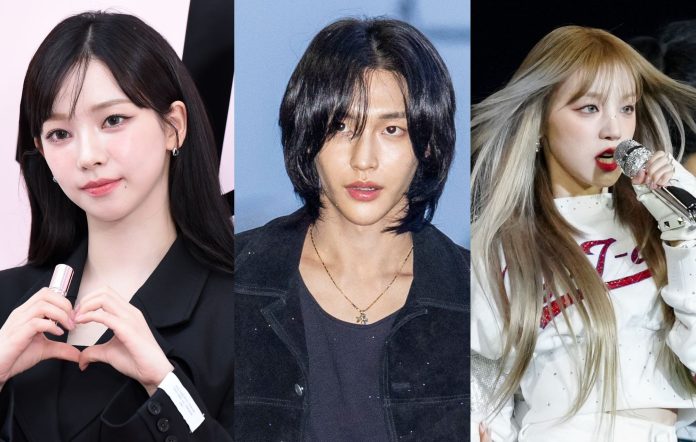Though one of the most successful country artists of his generation with more than 20 No. 1s, he’s blended different styles with seamless ease ever since his self-titled 1999 breakthrough album. The multiple Grammy winner not so much bursts through musical borders as never acknowledges they exist in the first place.
That boundary-busting is evident from the opening track of The Speed of Now, Part 1, out today (Sept. 18) on Capitol Nashville. “Out the Cage,” featuring Breland and Nile Rodgers, gallops out of the gate combining a skittering electronic beat with Urban’s driving banjo melody and no small amount of funk. Urban’s duet with P!nk, “One Too Many,” is a soulful, finger-popping look at a conflicted relationship. The nostalgic, sexy “Superman” references Johnny and June against an irresistible pop melody. Current single, the sloping, romantic “God Whispered Your Name,” sits at No. 9 on Billboard’s Country Airplay chart.
For Urban, the shapeshifting is all in service of trying to get the songs he hears out of his head and onto the record. “I can hear [the song] before it exists. I can hear a lot of my records and then I just set about trying to manifest them the way I hear them. They rarely come out the way,” he adds with a laugh, calling from Sydney a few days before heading back to Nashville, where he lives with his wife Nicole Kidman and their two daughters, to host Sept. 16’s Academy of Country Music Awards. “That's the ongoing frustration to be honest, but I'm getting closer and closer all the time.”
To celebrate the album’s release, Urban and his band will perform on The Speed of Now global livestream, an immersive experience taking place on Amazon Music’s Twitch channel, tonight at 9 p.m. ET (The concert can also be viewed on Amazon Music’s mobile app and on amazon.com/live.)
Billboard: How much of the album was created during the pandemic?
Keith Urban: It feels like the last 25 percent, maybe 30 percent, of it was done through this period. Finishing out the scope of the sonic picture that I was trying to paint took not only the time that I ended up with, but the reason for the time, which also informed those missing songs, like “Out The Cage,” “Say Something” and Live With.” All of that came not only in that time, but from that time as well.
“Out The Cage” is very much about quarantine, but it's also about liberating yourself, no matter what your circumstances. You’d worked with Nile Rodgers before, but how did Breland end up on the track?
I knew about Breland last year because he put out “My Truck” and I heard that track and a few other things he did. Then I read an interview with him around June, I just went, “Man, this guy is really woke. I love this guy.” The way he was talking about music and his creative process, it just spoke to me. I didn't know him. I got his phone number from a friend and I just cold-called him.
We talked for like 45 minutes nonstop and this was on a Wednesday. I said, “Gosh, if you're ever in town, I really love to see what we could create in the studio with no boundaries, no limitations, just write.” He said, “I'll come to your house Friday morning. I’ll be there at 10.” And quarter past nine on Friday morning, my phone rings, I'm making coffee, and he goes, “Hey man, I'm outside of your house. I got here a little early.” I said, “You drove here [from Atlanta]? What time did you wake up?” He says “5 o’clock.” We went in the studio and ended up writing a song and another one and another one.
You were able to do that safely during the pandemic?
We created an environment where we felt confident about how we were working together because I tried the Zoom thing and it's just not easy to do. For me, in the creative process, you've got to be able to talk over one another because the best ideas have to fly quickly. The lag time was bothering me. So we figured out a way to do it. We hit a prolific stride. It was an unexpected, prolific little period to round out the album.
Why did you want the song to open the album?
I always sequence my albums like it's a show. I think if anybody were to go back and listen to the first song on every one of my albums you’d be like, “Yeah, that's how you’d open a show; that would be the first song on the set list.” It just had all the energy and propulsion and genreless-ness that I wanted to open this particular album as well. And then I want a thematic connection that was relative to the time and for a lyric [quotes] “Don't know just how long/but I've been trapped in here quite a while/wonder if I'll make it out/I miss my friends, I miss the sky/feel like I just live to die. That can't be what life's about.” That was it. That was what I wanted to say.
It starts very much in the moment we’re in now with COVID-19.
And breaking out of the moment too, which is something that I needed and wanted. I've got a stockpile of rhythmic influences, usually from other genres, that I want to assimilate into my music and see if it works, whether it's a groove like I had on “Gone Tomorrow,” which opened Ripcord or whether it's this ‘90s, English House, drum, breakbeat loop idea I had, which became “Out The Cage.” I brought the rhythmic idea to the boys and said, "I really loved this energy. It makes me want to break something or go over the speed limit or miss my exit on the freeway. It jacked me up….It's pure, absolute liberation and we should write it from that perspective.” And then the melody, which became the chorus, was taken from a banjo groove that I kept playing over there.
But there was all these other things going on as well: It was Black Lives Matter going on, there were protests going on. There was so many manifestations of frustration of the confinement of all kinds. And so we really wanted to write it in such a way that it could connect with anybody in any of these situations, whether it be somebody who's just in a crap job and they're stuck or a relationship, any kind of stuck situation where you just want to literally break out of it.
How did the duet with P!nk on “One Too Many” come about?
My co-executive producer Dan McCarroll sent the song to me, and I loved it a hundred percent top to bottom. It was written as a duet. P!nk is just someone I've always loved. I’ve always loved her voice. She's so diverse in her abilities to tell a story. That's really what she's great at. She's blessed with one of the greatest voices. She’s a singer’s singer. And I just thought, “Man, I wonder if she would love this song?” and sent it to her and she hit me back. And it was on. She had to record her vocals remotely in California. And that wasn't an unusual thing. I had to do the same thing with Carrie [Underwood] on “The Fighter.” The unusual thing was then shooting a video remotely, which we just did a few weeks ago and piecing all that together, that was a bit more challenging.
If you look at your albums, even though you’re considered a country artist, you’ve never recognized any musical boundaries from the start.
Even in 1999, I was reaching for the sonic diversity there. Pat Quigley was running the record company and I said to Pat, “I’d really like to work with a hip-hop cat. Have him come down to Nashville. I don't know who it might be. Can you find me a legit New York guy?” He found this guy called Stevie J and he ended up flying to Nashville and we wrote this R&B thing called “You’re the Only One” and it’s all smoky, R&B, programmed drums. That kind of seeking and collaborating outside of the typical color palette, sonically, musically, was there right from the beginning for me.
What we've been working really feverishly on and consistently on, is trying to get the music out of my head. I think there should be a word called “audiolize” because I can hear it before it exists. And I can hear a lot of my records and then I just set about trying to manifest them the way I hear them. They rarely come out the way [laughs]. That's the ongoing frustration to be honest, but I'm getting closer and closer all the time.
We’re in a pivotal time right now in this country when it comes to social justice. On “Say Something,” you sing about leaving a better world and “I know words ain’t enough/but when the silence becomes so dangerous/We gotta say something.” Are you talking about Black Lives Matter?
It's about a lot of things. I got sent the song. The first verse was already written and it felt like it was very much a social issue commentary about speaking up about things you believe in, things that you want to see change, just speaking up and not being silent. I said, “I'd love to finish this song, but I think on the second verse, I'd like to open up some more dimension to what ‘say something’ means to me.” Because my personal experience was I was raised by a father who was quite the opposite.
He was like, “Don't speak out. Don't say anything. Just be quiet and put all your beliefs into your music, just say it in your music. Live your life by your principles and you won’t need to say it.” And there's some goodness and truth in that approach, but what I wished we had done was said more things in our home even, intimate things: “I love you.” “I’m sorry.” So I wanted the second verse to touch upon those things, which were more personal to my life, because I'm trying to raise my family a little bit different here. We do speak up in our house, we say things, we don't bottle stuff up. And that was important to me as well.
You haven't gotten to do a show with your band in front of an audience since your benefit drive-in show for first responders in May. How are you feeling about not getting to play live?
There is acceptance of it and this frustration about it. There's curiosity about what, when, how and then there's a little bit of satiation from doing shows—whether it's a virtual performance, a one-off situation, or various TV performances that are pre-filmed, but you get to play, you get to actually play. So we've got a huge Amazon Global live show [tonight] with my band on a sound stage. Even though there won’t be an audience, it will feel really good to play again.









